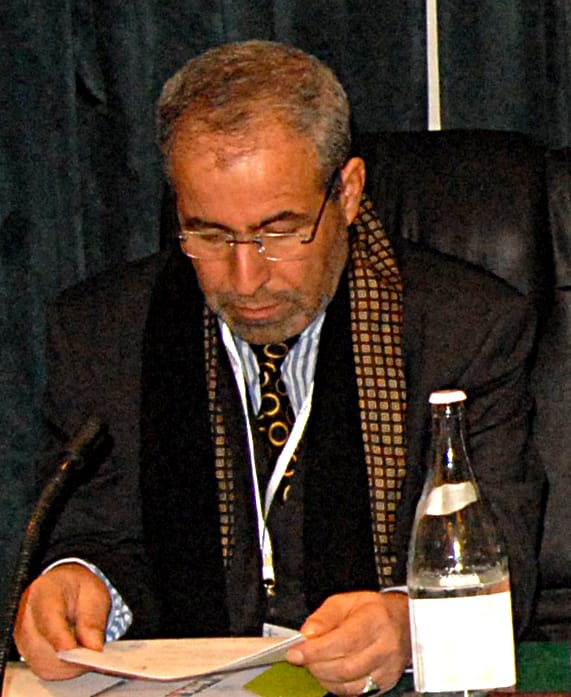
Released on bail, under administrative monitoring (after spending five months in prison under pre-trial detention)
About
Position / Party / Association: Political activist opposed to President Kais Saied
Date of birth: March 6, 1959
Profession: Lawyer and politician who previously held the position of Secretary of State at the Interior Ministry
Nationality: Tunisian
Date Targeted
February 13, 2023
Current Status
Released on bail, under administrative monitoring (after spending five months in prison under pre-trial detention)
Charges
Prosecuted on the basis of Article 128 of the Penal Code and Article 86 of the Communications Code.
Attempting to change the nature of the state under 10 articles of the Penal Code, including Article 72, which stipulates the death penalty for attempting to “change the nature of the state”.
Cases and Violations
First case:
Competent judicial authority: Civil Judiciary / Indictment Chamber of the Court of Appeal
Case details: November 13, 2022: Lakremi wrote in a post published on his personal Facebook account that the Tunis branch of the Tunisian Association of Lawyers informed him that he was being referred for investigation because of a political statement on the radio (Hakaiek Online) following a complaint submitted by the Minister of Justice, Leila Jaffel, against him on the basis of a media statement in which he commented on the work of the inspectorate of the Ministry of Justice and described some of the judges as “corrupt” although they were not dismissed, according to what he said (Al-Sabah).
December 15, 2022: He was interrogated by the first investigating judge in Office 21 of the Tunis Court of First Instance and kept on bail.
Second case:
Lawyers (defence): Samir Dilou, Samir Ben Omar, Abderrazzak Kilani
Details of cases: February 13, 2023: His house was raided and he was arrested.
On the same day of his arrest, Lakremi had written on Facebook: “Neither Kais Saied nor his regime, nor his grassroots or anarchist structure, have been able to answer people’s questions about high prices, employment, and the shortage of basic goods and hence in such a situation, it was necessary to present scapegoats”.
The judge interrogated Lazhar Lakremi solely regarding a coffee meeting with politician and opposition figure Khayyam Al-Turki. (Amnesty)
February 27, 2023: The investigating judge at the Anti-Terrorism Judicial Pole issued a detention warrant against Lakremi.
June 7, 2023: The date for the interrogation hearing before the investigating judge in Office 36 of the Anti-Terrorism Judicial Pole, which was scheduled for Thursday, June 8, 2023, was postponed to a later date to be determined. Lazhar Lakremi had previously refused to appear before the investigating judge, on April 28, 2023, “because of… Failure to provide a transport vehicle that respects the minimum humanitarian standards for transportation from prison to the Judicial pole,” according to a statement by the defense team. Akremi’s defense added that if there was an attempt to use what it called a “torture car” to transport Lakremi from prison to the headquarters of the anti-terrorism pole, he would refuse to board it and therefore the session would not be held, according to what was stated in the text of the report (Ultra Tunisia; Samir Dilou’s Facebook post).
July 13, 2023: The indictment chamber of the Tunisian Court of Appeal decided to grant the defense’s request regarding the release of Lazhar Lakremi, with a travel ban on him and a ban on appearing in public places.
Breaches: Very poor living conditions: Lawyer Ines Harrath stated, in her Facebook post, after visiting Jawhar Ben Mbarek, Ridha Belhaj, Issam Chebbi, Ghazi Chaouachi, and Lazhar Akremi, and after meeting colleagues who visited Al-Turki, that they were “deprived of the right to wash and exercise, and they were transferred to extremely dirty rooms full of insects and not equipped with any sanitary facilities, as human needs must be relieved in a hole on the floor, in addition to depriving the prisoner of the most basic rights such as treatment,” she asserted. Ines Harath also considered that “there are orders from the regime to the prison administration to endanger the lives of political detainees by placing them with carefully selected common crime prisoners, most of whom were imprisoned for premeditated murder cases,” according to what was stated in her facebook post.
